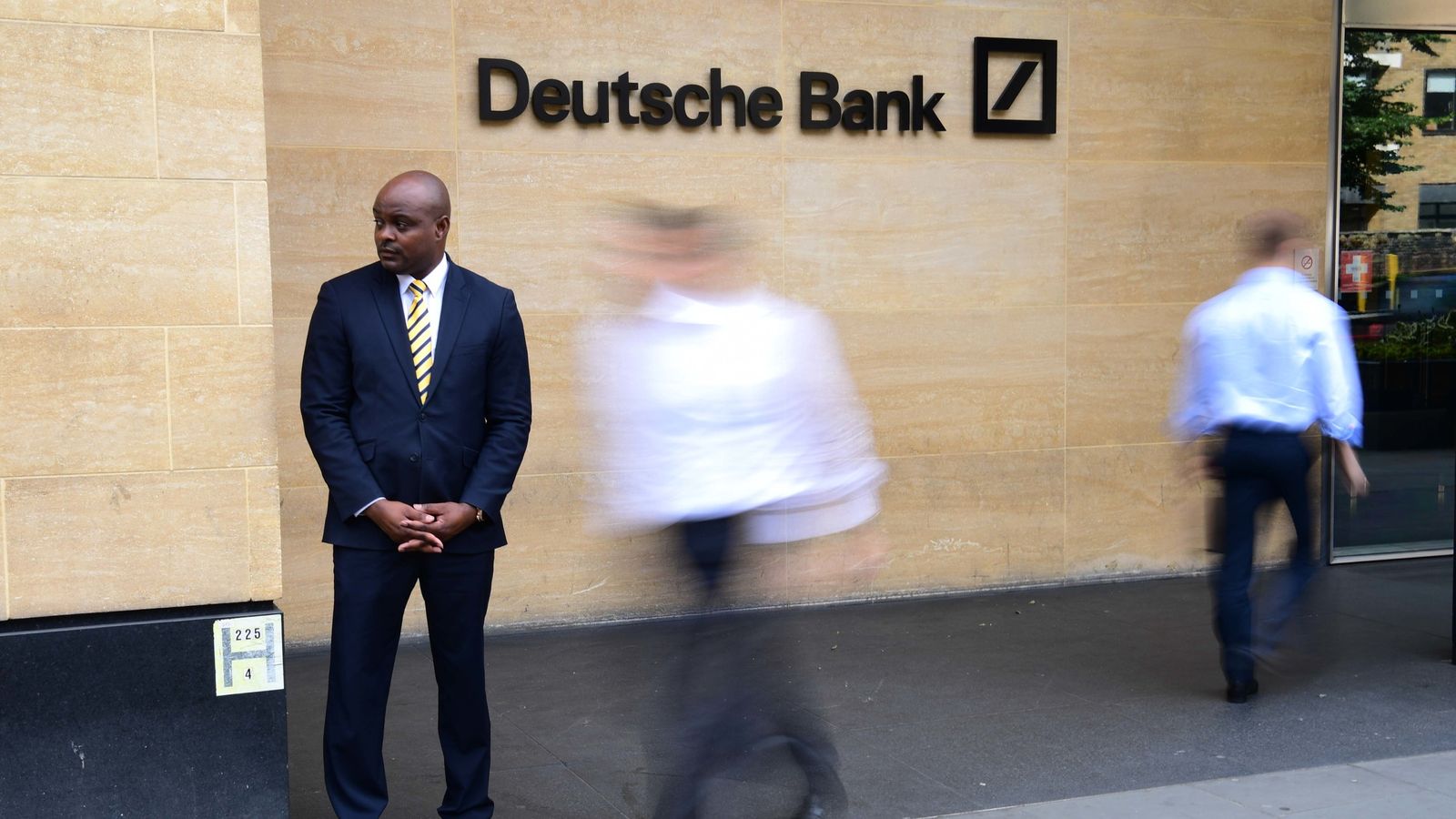Deutsche Bank heads new rout for banking stocks on financial markets

Germany’s largest bank has become the focus in a new wave of selling across banking and wider financial stocks, less than a week after the forced takeover of Credit Suisse.
Deutsche Bank shares were more than 13% down in volatile trading Europe-wide.
The bank’s so-called credit default swap rate was up more than 18%.
It essentially represents a sharp jump in its cost of insuring against the risk of default.
Markets have been jittery for weeks in the wake of the failure of Silicon Valley Bank in the US.
Fears about the impact of rising interest rates on banks’ bondholdings have since claimed a major scalp in Credit Suisse, Switzerland’s second-largest bank.
It was forced by regulators into a takeover by larger rival UBS last weekend, before financial markets opened for business on Monday.
It took until Friday – just ahead of the weekend break – for a new focus to emerge.
Chris Beauchamp, chief market analyst at IG, said: “We are still on edge waiting for another domino to fall, and Deutsche is clearly the next one on everyone’s minds (fairly or unfairly).
Advertisement
“Looks like the banking crisis hasn’t been entirely put to bed.”
Please use Chrome browser for a more accessible video player
3:36
A five-point guide to the banking panic of 2023
Banking stocks were down across the board in Europe, with the German DAX led 2.5% down by Deutsche Bank.
The bank employs 7,000 staff in the City of London where the FTSE 100 was trading 2% lower.
Barclays tumbled by 6% while NatWest, HSBC and Lloyds saw declines of 5.9%, 4.6% and 3.5% respectively.
Wider economy stocks – such as mining and energy shares – also fell on fears the crisis of confidence in the banking sector would curtail the availability of credit and therefore economic growth.
Read more from business:
Retail sales pick up as consumer confidence improves
Millions of mobile phone and internet users to see bills rise next week
British billionaire submits revised bid for Manchester United
The government and the Bank of England have previously moved to reassure investors that the UK banking system is at no risk as the financial strength of lenders is very high compared to pre-financial crisis levels and their European peers.
HSBC itself has spoken out in support of the sector.
“We’re not worried about liquidity issues for UK banks, as they run with high levels of central bank reserves and shouldn’t need to sell bond portfolios to meet deposit outflows,” it said.